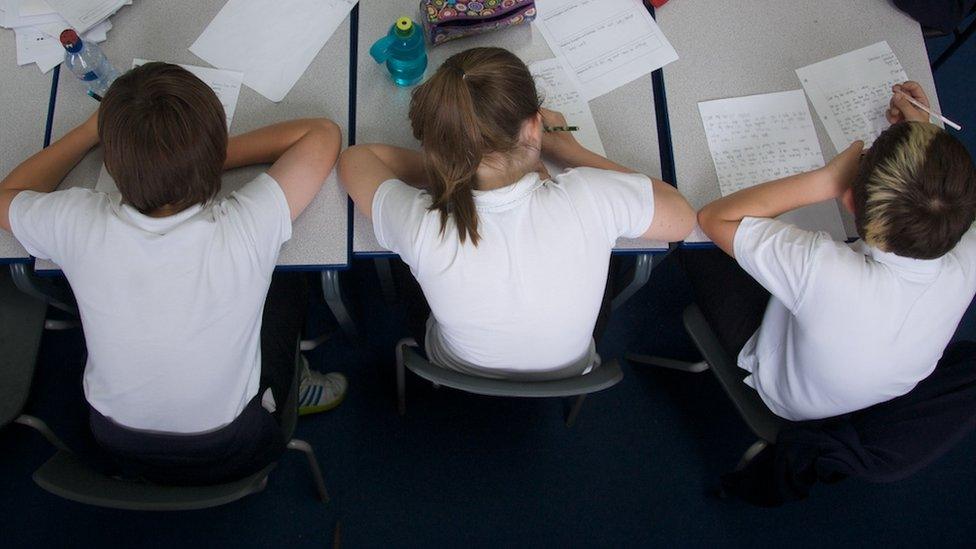Ballot on strike action by teachers moves a step closer
- Published
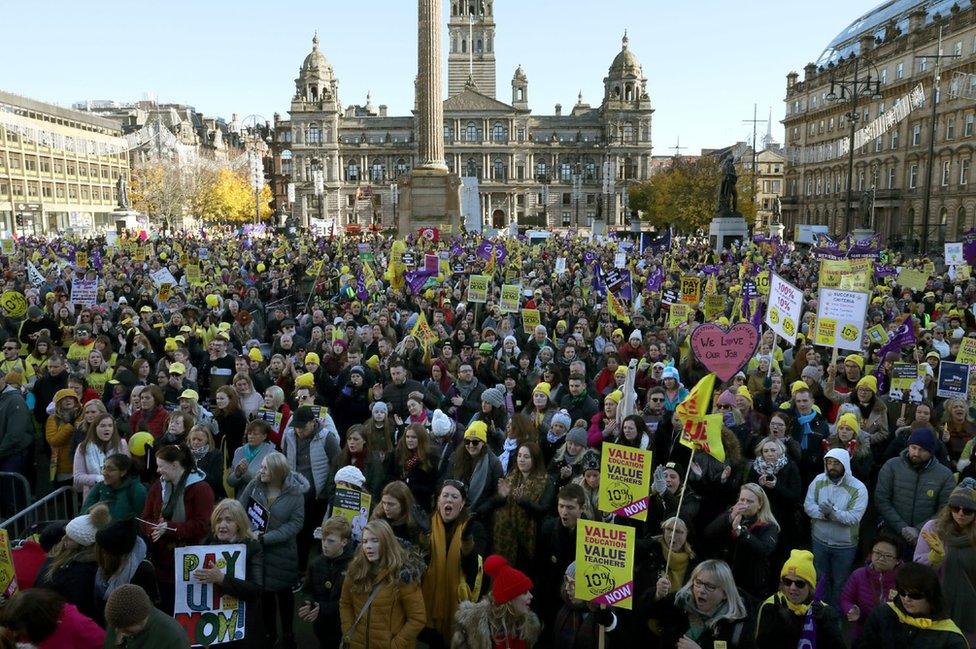
Thousands of teachers marched in Glasgow last October
Scotland's biggest teachers union looks set to ballot its members on strike action.
The executive of the Educational Institute of Scotland union is recommending a ballot as part of its campaign for a 10% pay rise.
It will now go to the union's national council for approval.
The Scottish government and councils say the deal they are offering teachers is the most generous for public sector workers in the UK.
EIS general secretary Larry Flanagan said the patience of its members have been exhausted.
He said: "The EIS executive has agreed the timeline for the opening of a strike ballot over pay.
"Our national council will now meet tomorrow [Saturday] to review this timeline, and to consider granting authorisation for a statutory strike ballot on pay."
He added: "Our members have shown a great deal of patience over the past year, but this patience is now exhausted.
"While we would still welcome any improved pay offer from employers, none has yet been forthcoming. Therefore, our council will now decide whether to initiate a statutory strike ballot when it meets tomorrow."
Staggered pay rise
Last year the EIS and other teacher unions tabled demands for a 10% pay rise over one single year.
The Scottish government and councils argue its proposal, staggered over a three-year period, is the best they can afford.
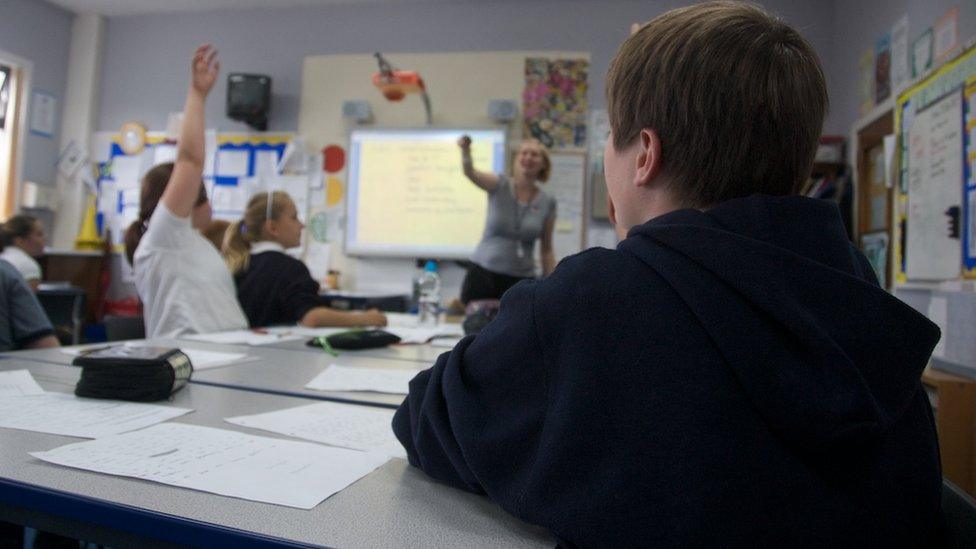
The deal offers a 3% pay increase for those earning up to £80,000 in 2018-19, with those at or above that level receiving a flat rate increase of £1,600.
Then in both 2019-20 and 2020-21 teachers would get a further 3% rise.
The Scottish government said its additional contribution to restructure the pay scale would see all teachers on the main grade scale receiving at least a 5% increase in 2018-19, which would be backdated to April last year.
Some teachers would receive up to 11% in one year in conjunction with annual progression.
Further talks
The government and councils have urged unions to put the offer to their members.
Talks earlier this week between the unions, councils and the government have not led to a new offer so far, and further talks are due to take place later this month.
Before teachers could go on strike, at least 40% of those entitled to vote would need to back action in an official ballot. The turnout would need to be at least 50%.
The last widespread industrial action by Scottish teachers over their pay and conditions was in the mid-1980s.
A lengthy work to rule had a serious impact on school sport, extra curricular activities and the introduction of Standard Grades.
While most schools were affected by strikes during this dispute, secondary schools in Conservative constituencies were targeted. EIS members at those schools regularly went on strike three days a week.
- Published21 November 2018
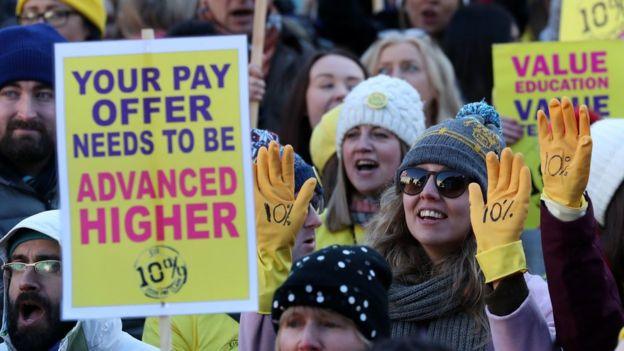
- Published27 October 2018
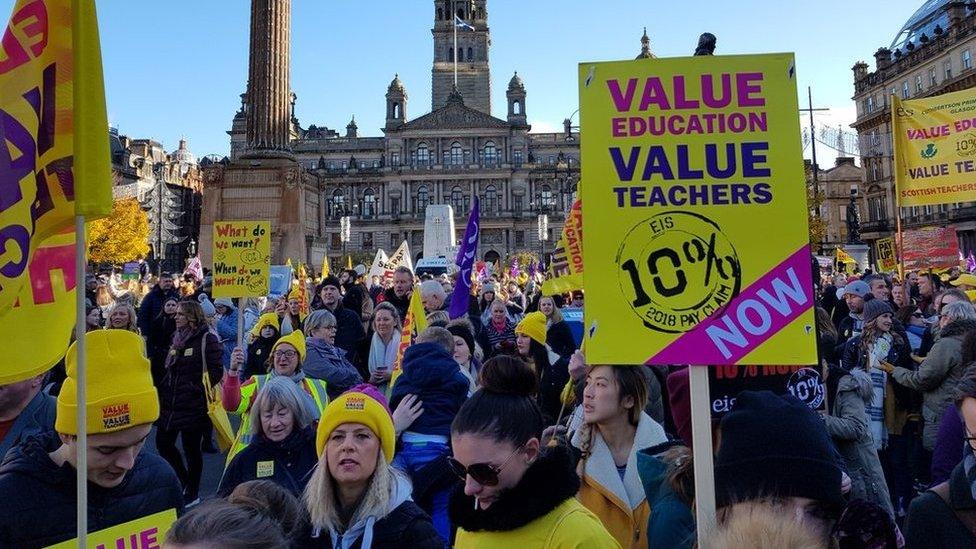
- Published20 November 2018
